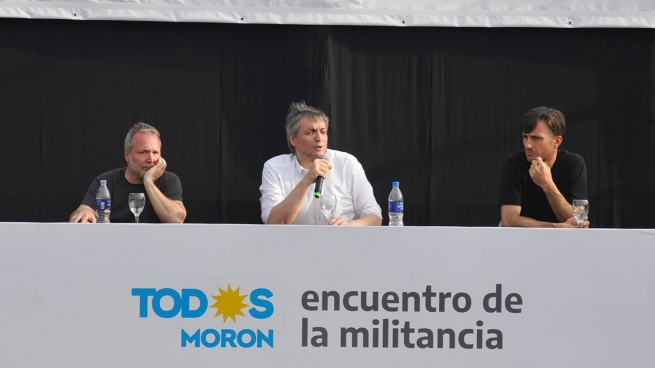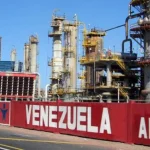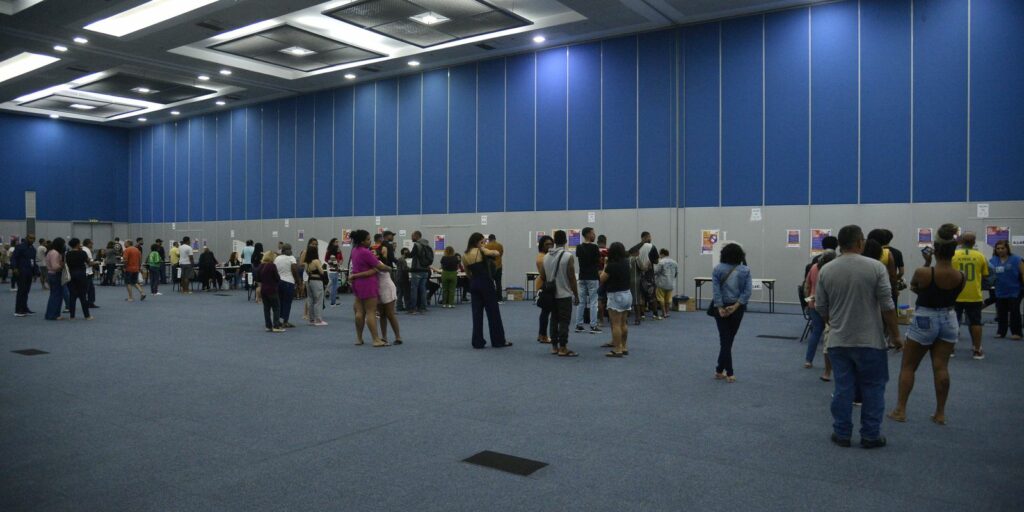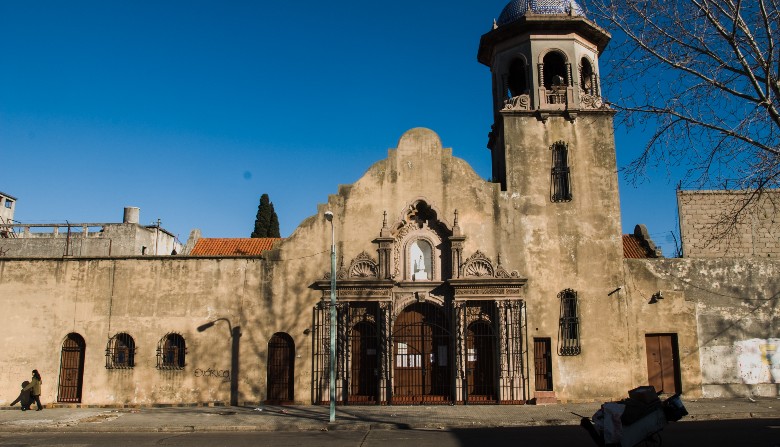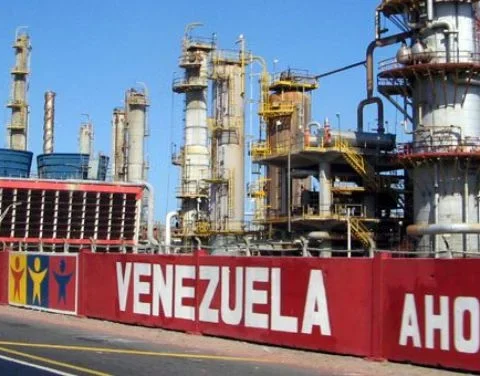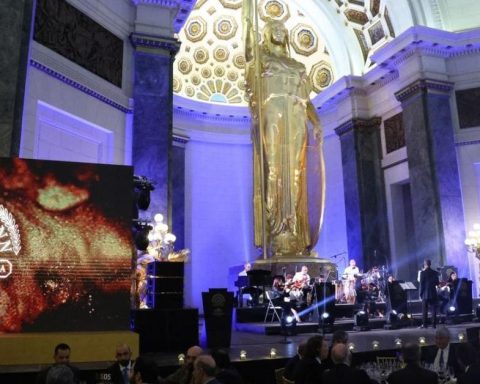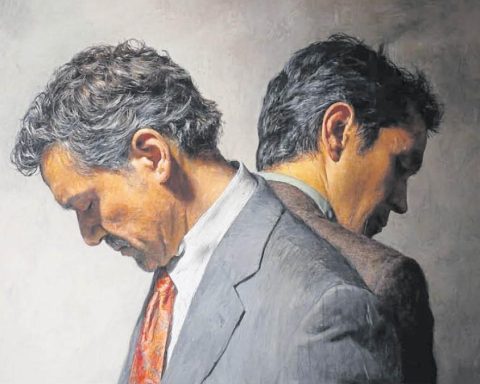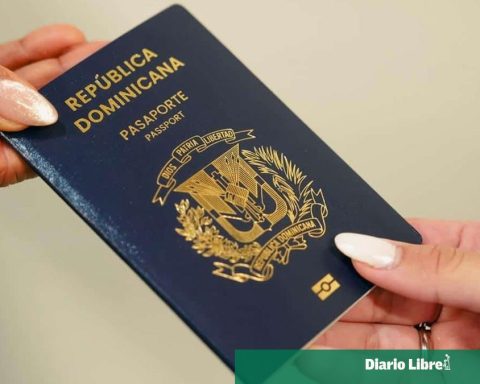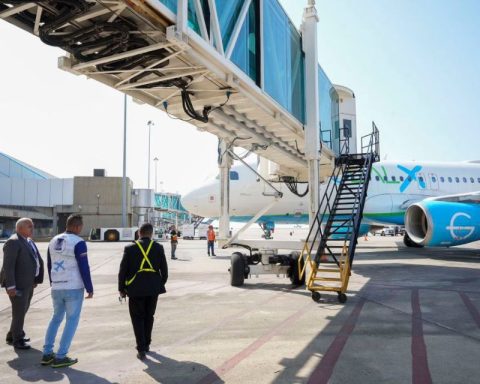Deputy Máximo Kirchner warned that “It is not thinking that if I suppress this or that the country will be better”maintained that the slogan “prison or bullet” has already “failed” with the civic-military dictatorship and demanded that it be identified “Who was behind Sabag Montiel and Brenda Uliarte”when delivering his first speech this afternoon since the attack against Vice President Cristina Fernández de Kirchner.
During an act in Morón that coincided with the first month of the attack against his motherKirchner criticized Mauricio Macri for the debt contracted with the IMF, but also blamed him for incorporating the idea of suppressing the other, for which he recalled a phrase in which the former president spoke of the need to “send 500 or 600 Argentines to the moon for Argentina to develop”.
The head of the Buenos Aires PJ also had very harsh words with the head of the Buenos Aires government, Horacio Rodríguez Larreta, whom he questioned for sending the City Police to the schools taken over in CABA and reproached him for using “such harsh language, so of taita, suburb and handsome to get plate against the boys and girls “.
Protests in Buenos Aires schools
For the legislator and founder of La Cámpora, Larreta’s decision to toughen the intervention of the Buenos Aires government in the face of student protests was a way of “unloading the frustration of looking down on Macri, who mistreats him and leaves him without dignity. “.
Also, contrasted that attitude of the Head of Government with the absence of the Buenos Aires Police when the March of the Torches to the Casa Rosada took placein which members of the Federal Revolution organization threw burning torches over the fences that surround the perimeter of the government headquarters.
“It is seen that (Larreta) is more interested in young people who carry torches, put guillotines and propose to kill the other,” Kirchner charged in the box set up in one of the Los Matreros rugby club grounds, from where he raised strong questions Macri, the head of government and former governor María Eugenia Vidal.
Conceptually, the legislator stated that certain events in recent years, such as the debt that Macri took on with the IMF without guaranteeing conditions for “repayment” or the appeals to “violence, stigmatization and persecution” against social sectors and Politicians – among them Kirchnerism – showed that “the myth of the efficient and democratic right is over,” he warned.

He then added that at the end of 2015, with the arrival of Macri at the Casa Rosada, “editorials explained to us the new democratic right that we had, a right that knew how to communicate,” but he considered that that interpretation that found a lot of media echo was denied by Over time.
In that sense, he pointed out that “the media have taken sides” with the potential candidates of the PRO, even affirming that in CABA “the two main written media” respond to Larreta himself, as well as “the automatic majority” of the Legislature and the Judiciary; he also warned about the actions of the City Police by defining it as “a Political Police.”
Regarding the day his mother was attacked, Kirchner commented that “that Thursday morning” he had given an interview in which he said that “the opposition seemed to be competing to see who would kill the first Peronist,” and then recalled the recording of the Buenos Aires Police in which an officer instructed that “the governor (Kicillof) was one more protester and (Andrés) Larroque had no privileges”.
“It is seen that (Larreta) is more interested in young people who carry torches, put guillotines and propose to kill the other”Maximo Kirchner
Also, he stated that the proliferation of hate speech against trade unionism, youth, political militancy of the left and Peronism should be read as “the spearhead of the installation of models of exclusion.”
Kirchner he was accompanied on the box by the mayor Lucas Ghi (FdT); the deputy Mónica Macha, also from the ruling party, and the head of the Matanza-Riachuelo Basin Authority (Acumar), Martín Sabbatellaall leaders of Morón.
Among the seats distributed on the grass of an old rugby pitch, many leaders of the FdT could be seen, among them the national ministers Gabriel Katopodis (Public Works) and Juan Zabaleta (Social Development); Mayor Damián Selci (Hurlingham); the director of the PAMI Luana Volnovich; the national deputy Leopoldo Moreau, and the Buenos Aires ministers Walter Correa (Labor) and Leonardo Nardini (Infrastructure).
In another section of the speech, the head of the Buenos Aires PJ took stock of the effects produced by the attack on his mother: “Do you know what annoys me the most, at least to me? It is the distraction generated by all this that has happened, which has distracted us from the problems we were addressing.
Elections in Brazil
He then referred to the presidential elections in Brazil, hours before Luiz Inácio Lula Da Silva competes in the background duel with Jair Bolsonaro and with serious chances of reaching the Planalto Palace for the third time, a fact that Máximo Kirchner associated with ” the beginning of a new political process”.

“Tomorrow Brazil will vote and perhaps it will return after twenty years. For some, twenty years is the end of a political process, for Lula it may be the beginning of a new one. And the most important thing, whether he wins or not, is what it means After everything they have done to him, the persecution he suffered, not being able to say goodbye to relatives who died while he was in jail, “he reviewed.
The present of the Front of All
As for the reflections within the coalition itself, Kirchner highlighted the work carried out by the Minister of Economy, Sergio Massa, to add reservations, he reiterated his criticism of the predecessor Martín Guzmán for “cutting loose like Casildo Herreras”, in reference to the trade unionist who he headed the CGT at the time of the 1976 coup, and insisted that the credit with the IMF, being “political,” should have been renegotiated in another way.
“The capital that comes to invest in Argentina wants to do it for very little money, imposing totally lax environmental regulations,” he warned, warning of a process that seeks to impose “labor flexibility, tax flexibility, and environmental flexibility.”
For its part, the Buenos Aires Justicialist Party, headed by the national senator Mariano Recalde, held a new act in support of the Vice President in the Plaza Banderín, in the neighborhood of Florestaone month after the attack against him, where he highlighted the call by stating that “there was a great need to defend democracy, Cristina” and “see how we get ahead against the anti-democratic attitudes of macrismo in general.”
With the motto “The people take care of Cristina, Cristina takes care of the people”, the act summoned the neighbors of the commune 10 in a meeting in which the president of the Buenos Aires PJ Congress, Víctor Santa María; the general secretary of the Union Association of Subway and Premetro Workers (AGTSyP), Roberto “Beto” Pianelli, and the economist and congresswoman of the national PJ, Kelly Olmos, among others.
Santa María, for her part, stated in statements to this agency that the idea of the meeting was “to reflect on the attack that the vice president has suffered” and stated that “Cristina is attacked not because she is Cristina, but because of what she represents as happened with Peronism”.
After the attempted assassination of the Vice President, the Buenos Aires FdT convened different meetings of the militancy in city squares every following Saturday.
On Saturday, September 17, two calls were held in squares, one in the Boedo neighborhood and the other in Villa Miter, while on September 10 there was a massive act in Parque Lezama.
